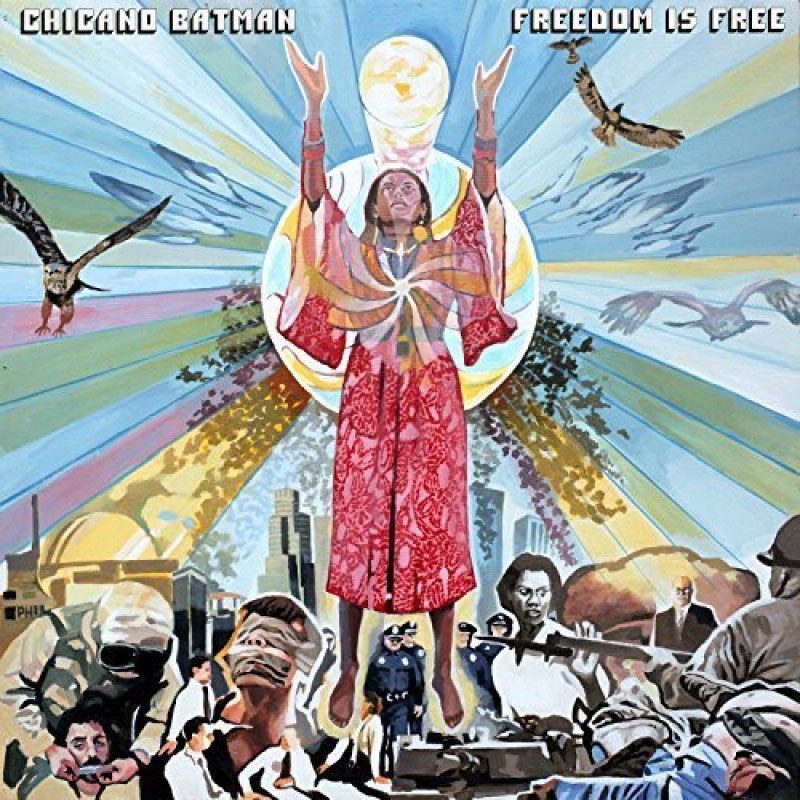Description
Label Review.
2017 album.
Our Overview.
Chicano Batman is the sound of local Latino music in the 21st century. In 1993, when Los Lobos released the now classic "Just Another Band from East L.A.," the band was paying homage to and locating themselves within the legacy of Chicano and Mexican music coming from "East Los" going all the way back to icons like Lalo Guerro and legions of other more anonymous working musicians. Twenty years, later East L.A. is still an important hub of Chicano/Latino culture in Los Angeles but the cultural map of music making has also significantly shifted.
Chicano Batman comprised of Bardo Martínez (vocals/keyboard/guitar), Eduardo Arenas (bass), Gabriel Villa (percussion) and Carlos Arévalo (guitar), exemplifies this new geographic and cultural reality. More importantly, the band claims, is their shared musical eclecticism that is heard in the bands mix of funk, R&B, Latin soul, bossa nova, psychedelia and pop.
"Yes, you can categorize us as different genres but more than anything it's a feeling, we all put all of our energy into it and try to meld each other's sounds together," says Bardo in an interview with KCET (2013). Pressed on the specific genres they incorporate into their sound Eduard added "we keep expanding our genre and it's hard to say what we are doing right now. We'll do romantica feel songs, we'll do funk type songs, some Columbian rhythms, Mexican cumbias, Columbian cumbias. We do a lot because we're fans of so much music. We'll do Brazilian stuff like samba and bossa feels so it's hard to say what we are doing." Gabriel quipped that in trying to explain the band's sound to friends he has resorted to saying it's "música para planchar," music to iron to. Given that the band originally used an ironing board as a keyboard stand the description is not entirely without merit.
As such their new album, ‘Freedom Is Free’, marks a change both stylistically and thematically. "It's a counterpoint to the propaganda catch phrase that was invented by the US government during the first Iraq war," says Bardo Martinez, the band's lead vocalist, guitar, organ, of the latter, from his LA home. "It's a counter-narrative…the song itself relates to the idea that freedom is inherent to every individual on this planet and in the universe."
Musically, in addition to ruffling the feathers of the state on songs like "The Taker Story," the album represents the band's decision to bring the soul and R&B elements of their sound to the fore. To achieve their ambitious sonic goals, the quartet worked with producer Leon Michels in his Diamond Mine Recording studio in Long Island City, New York. Michels, a veteran in the New York soul revival scene, has performed in Sharon Jones & the Dap Kings, The Black Keys, and The Menahan Street Band. His funky fingerprints are all over the album—he tracked the whole thing on analog tape, and contributed keyboards and his trademark horn arrangements.


